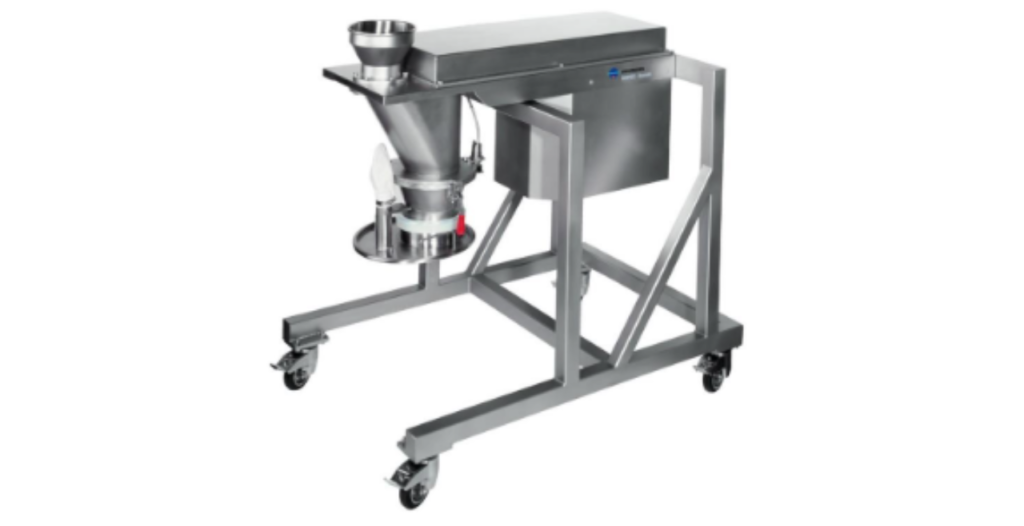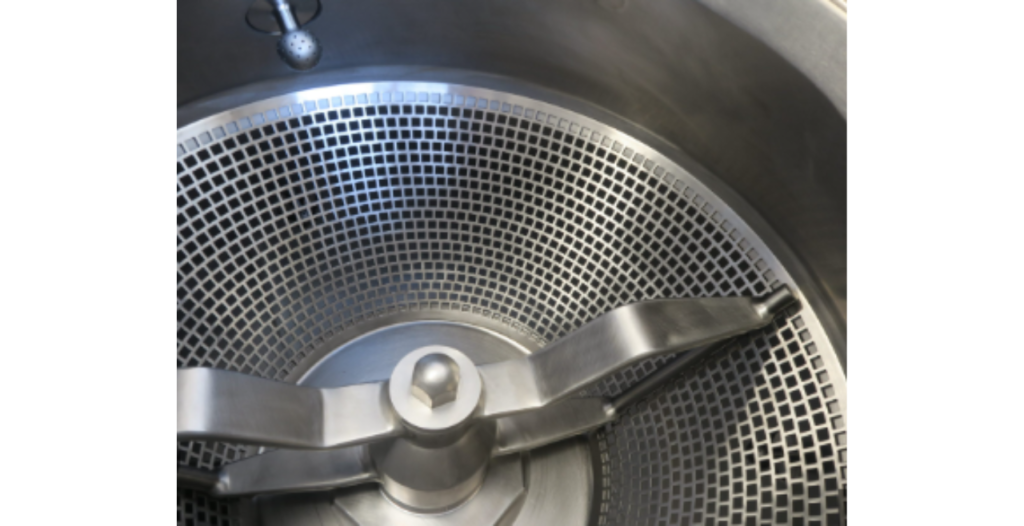Cone Mill
#GRINDING/MILLING/PARTICLE SIZE REDUCTION TECHNOLOGY & PRODUCTS
Cone Mill Also Known As A Conical Mill Or Cone Milling Machine, is a versatile pharmaceutical and chemical processing equipment used for size reduction and granulation of powders and granules. It features a conical-shaped milling chamber and a rotating impeller or rotor. Cone Mills are widely used in the pharmaceutical, food, and chemical industries. Here’s a detailed overview of Cone Mills, including their working principles, advantages, disadvantages, applications, materials of construction (MOC), and a summary: |
| Working Principles: |
| The working principle of a Cone Mill involves the following steps: |
| Feeding: The material to be processed is fed into the top of the conical milling chamber through a hopper or feeding mechanism. |
| Milling Action: Inside the milling chamber, a rotor with blades, pins, or a combination of both rotates at high speed. As the material flows downward due to gravity, it is subjected to the impact, shear, and compression forces generated by the rotor. |
| Size Reduction: The combination of the rotor’s high-speed rotation and the milling action reduces the particle size of the material as it moves toward the bottom of the cone. |
| Classification: Some Cone Mills have an integrated classifier or screen that separates fine particles from coarser ones as the material exits the milling chamber. This allows for controlled particle size distribution. |
| Discharge: The milled and classified material is discharged from the bottom of the milling chamber, often into a collection vessel or conveyor for further processing. |

| Advantages: |
| Versatility: Cone Mills are versatile machines that can be used for various size reduction tasks, including coarse and fine milling. |
| Uniform Particle Size: They provide good control over particle size distribution, resulting in uniform and consistent product quality. |
| High Efficiency: Cone Mills are known for their efficient and rapid size reduction capabilities. |
| Low Heat Generation: The milling action generates relatively low heat, making them suitable for heat-sensitive materials. |
| Ease of Cleaning: Many Cone Mills are designed for easy disassembly and cleaning, making them suitable for pharmaceutical and food applications. |
| Disadvantages: |
| Initial Investment: Cone Mills can be relatively expensive to purchase and install, especially for specialized or high-capacity models. |
| Maintenance: The high-speed rotation of components can result in wear and tear, necessitating maintenance and blade or pin replacement. |
| Energy Consumption: Cone Mills can consume a significant amount of energy, especially when processing tough or hard materials. |
| Limited for Some Applications: They may not be suitable for processing extremely hard or abrasive materials. |

| Applications: |
| Cone Mills find applications in various industries, including |
| Pharmaceuticals: For milling active pharmaceutical ingredients (APIs) and excipients to specific particle sizes. |
| Food Industry: In the production of powders, granules, and food additives like spices, herbs, and sugar. |
| Chemical Industry: For reducing the size of chemicals, pigments, and dyes. |
| Granulation: In the pharmaceutical and food industries to produce uniform granules. |
| Minerals and Mining: For milling and grinding minerals and ores. |
| Materials of Construction (MOC): |
| The choice of materials for Cone Mills depends on the specific application and the materials being processed. Common materials of construction include |
| Stainless Steel: Often used for the main structure and milling components due to its corrosion resistance and suitability for pharmaceutical and food applications. |
| Hardened Alloys: Used for blades, pins, or other components that come into direct contact with the material to handle wear and abrasion. |
| Summary: |
A Cone Mill is a versatile size reduction machine used in various industries for the milling and granulation of powders and granules. It operates based on high-speed rotor impact and provides advantages such as versatility, uniform particle size, high efficiency, and ease of cleaning. Materials of construction are selected based on the specific application’s requirements. |


 Sales & Marketing:
Sales & Marketing:  Service Supports:
Service Supports:  Website:
Website: 